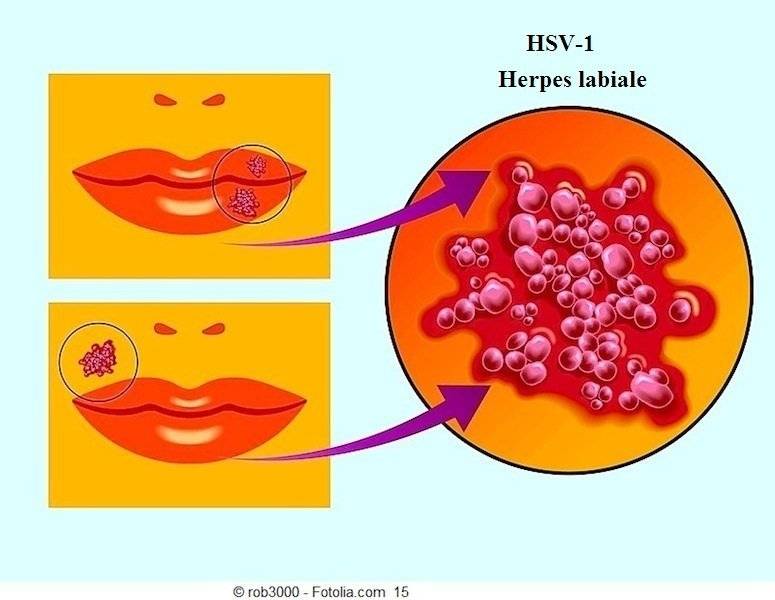Genital Herpes: To Suppress or Not to Suppress
Written by:
by Christine Haran
Anyone infected with the genital herpes virus will have the virus for the rest of his or her life. So one of the major goals when living with herpes is to lead a healthy sexual life yet not spread the virus to someone else.
Not spreading the virus to another person can be a challenge because herpes is spread via skin-to-skin contact and can be transmitted even when someone is not experiencing symptoms such as itching, sores or painful urination. But while there is no cure for herpes, there are different treatment options available that can help reduce the duration of outbreaks, which usually occur four to five times a year.
People can choose to treat only their outbreaks with antiviral medications, or they can choose to take these drugs daily to prevent outbreaks and perhaps prevent the spread of the virus. Experts say that selecting a treatment approach is a personal decision.
“Treatment should be individualized,” says herpes researcher Lawrence Cory, MD, the head of virology at the University of Washington in Seattle. “It involves a joint decision between a patient and doctor based on a number of factors.”
How Herpes Behaves
Genital herpes is caused by the herpes simplex virus, which is part of a family of herpes viruses, which includes the viruses that cause oral herpes, chicken pox and shingles, and many cases of infectious mononucleosis.
While genital herpes is usually associated with herpes simplex type 2, herpes simplex type 1, which is linked to cold sores on the mouth and lips, can also appear in the genital area. A blood test can determine if you are carrying these viruses.
With genital herpes, symptoms can appear a few days after it is first picked up—or a few years later. And, for reasons that are not understood, not everyone will have an outbreak. The type and number of outbreaks people have will vary greatly, and they can be triggered by factors such as illness, stress and certain surgeries. Some outbreaks may be so mild as to be completely overlooked, or be mistaken for yeast infections, insect bites, jock itch and even hemorrhoids. The first outbreak is usually the most severe, causing flu-like symptoms, burning and painful blisters that become open sores.
Because the virus is spread though the skin, it is usually contracted during genital or oral-genital contact. Consequently, experts recommend avoiding sexual contact during outbreaks, and men are advised to wear latex condoms consistently and correctly during sexual activity at all other times.
Treatment or Prevention?
Outbreaks can be treated with what is known as episodic therapy, which involves taking antiviral medication only during outbreaks to shorten the length of time you have symptoms. Another approach is suppressive therapy, where you take antiviral medication daily to prevent outbreaks and reduce the risk of transmission.
Those who choose suppressive therapy take the same medications used to treat individual outbreaks but follow a different schedule. These drugs include acyclovir (Zovirax), valacyclovir (Valtrex) and famciclovir (Famvir). While acyclovir is available as a cheaper generic, it has to be taken about three times a day, while valacyclovir and famciclovir are usually taken just once daily.
“All are equally effective at suppressing recurrences.” Dr. Corey says. “So they all work, but they all have a different number of pills, dosages and costs. The advantage of one over the other is that valacyclovir has been shown to decrease transmission by 50 percent. The others may decrease transmission, but this has not been proven in clinical trials.”
These medications prevent and treat outbreaks and reduce transmission by helping to block viral replication and suppressing viral “shedding” that can occur even when you are not having symptoms. This shedding occurs when the virus reactivates and moves from the nerve cells where it resides to the skin, where it starts multiplying.
Dr. Corey cautions that even though a 50 percent risk reduction in transmission is significant, these medications do not eliminate risk, so people still have to practice sex safety.
What’s Best for You?
According to Dr. Corey, the number one factor to weigh when considering suppressive therapy is how concerned you are about spreading the virus to another person. Other factors include the nature of your sexual relationships, how frequent your recurrences are and how you are coping with having herpes.
“If they are bothered by the whole process of herpes, than daily suppressive therapy is the best approach because that’s the only way to ensure some modicum of success in reducing transmission,” he says.
Some people, however, may only have mild outbreaks—or may feel like they don’t want to take medication everyday, even though there are no major associated side effects.
“The safety data is good, but there is a concern that people will be on it forever.” Dr. Corey says. “My experience is that this is not the case.” People can, in fact, safely go on and off antiviral medication.
“If suppressive therapy is the right choice for someone, they should not have any reservations about it.” Dr. Corey continues. “An enormous number of people have been on these medications, they don’t lead to resistance and a lot of patient satisfaction goes with them.”
© 2006 Healthology, Inc.
- Return to Genital Herpes
- Check out: Part Two – Talking Openly About Genital Herpes and Herpes On The Rise.
- Use a CONDOM every time you have sexual intercourse. For condom help…
- To Sex Stuff and STDs
- Visit Condomania Online for condoms in 55 different sizes!
